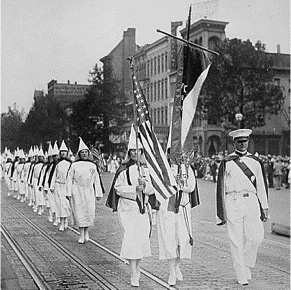The Civil War in Memory: 1877 to 2013The Civil War in Memory: 1877 to 2013 |
How were national politics affected by the war? |
From 1865 until 1900, the single most important question that could be asked of each and every major political candidate was: What did you do during the war? It is no surprise that a slew of high-ranking Union Army officers won presidential elections: Ulysses Grant in 1868 and 1872; Rutherford B. Hayes in 1876; William McKinley in 1896 and 1900. What was true on the national level was also true in local, county, and state elections. A man who had been adult and able-bodied during the war was expected to have served; anyone who did not was considered suspect where political office was concerned.
The Republican Party, too, was seen as the party of Lincoln, of Union, and of victory. For almost forty years, the Republican Party remained the most powerful element in American politics, and it had nearly a stranglehold on the vote in the industrial North. The Democratic Party, conversely, became known as the party of the South, the Confederacy, and the Lost Cause. The “Solid South,” as politicians and pundits call it, emerged in the years following the war.

A 1928 Ku Klux Klan march in Washington, D.C.
